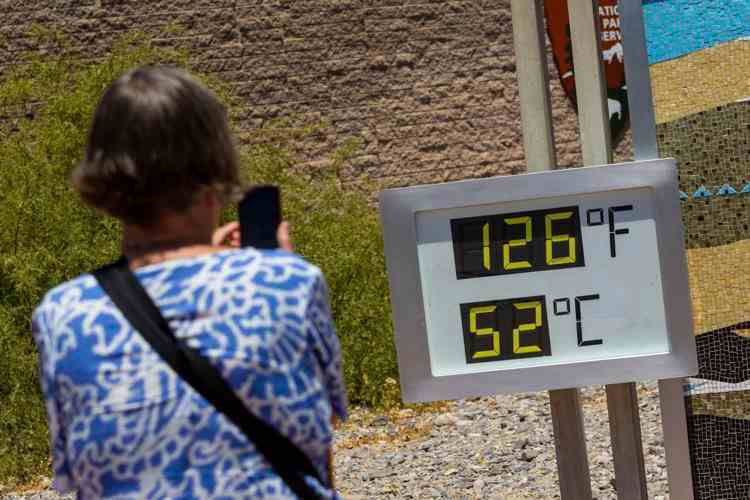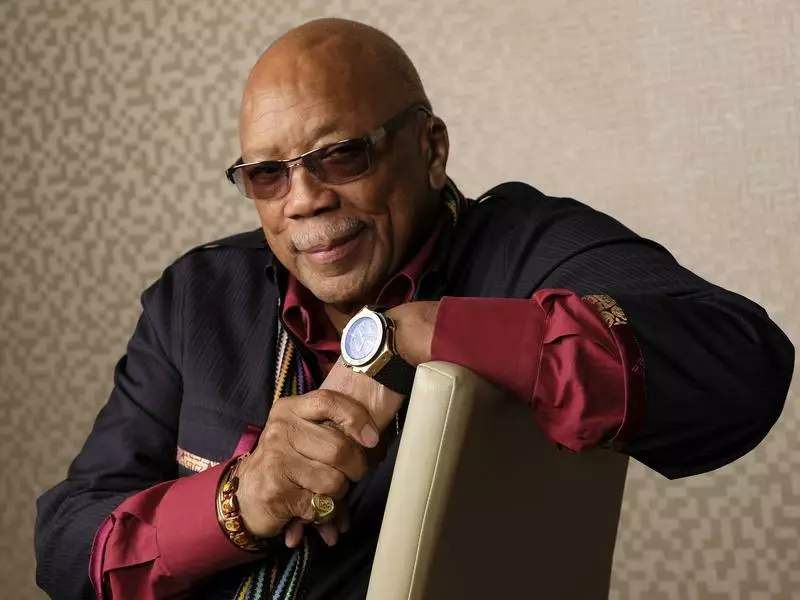The Temperature Reaches 128 In California’s Death Valley, Motorcyclist Dies From Heat Exposure
Jul 8, 2024 / GMT+6
A record-breaking heat wave continues to scorch the U.S., hitting the West with dangerous temperatures and causing a motorcyclist's death in Death Valley.
More topics for you...This topic continues below.
China reports record $1.2 trillion trade surplus for 2025, defying Trump's tariffs.
An excessive heat warning is in place for around 36 million people, about 10% of the population, says NWS meteorologist Bryan Jackson. Many places in the West and Pacific Northwest have tied or broken heat records.
Over the weekend, many areas in Northern California exceeded 110 degrees (43.3 C), with Redding hitting a record 119 (48.3 C). Phoenix set a new daily record on Sunday with a low of 92 F (33.3 C).
Death Valley National Park in eastern California recorded a high of 128 F (53.3 C) on Sunday. A visitor died from heat exposure, and another was hospitalized, officials reported.
The two were part of a group of six motorcyclists riding through the Badwater Basin area in the extreme heat, the park said in a statement.
The deceased person was not identified. The other motorcyclist was hospitalized in Las Vegas due to severe heat illness, according to the statement.
The remaining four were treated on-site.
"High heat like this can be a real health threat," said park Superintendent Mike Reynolds.
Chris Kinsel wasn't bothered by the soaring temperatures. He described being at Death Valley on a record-breaking day as akin to Christmas for him. While he and his wife typically visit in winter, experiencing the extreme summer heat has always been a dream for him.
Kinsel, visiting from Las Vegas, said, "I've always dreamed of experiencing Death Valley in summer. It's been on my bucket list for most of my life."
He planned to take a photo next to the park’s visitor center digital temperature sign.
In Nevada, Natasha Ivory took four of her eight children to a water park in Mount Charleston, which hit a record 119 F (48.3 C) on Sunday.
“They’re having a ball,” Ivory told Fox5 Vegas. “I’m going to get wet too. It’s too hot not to.”
Jill Workman Anderson was at Mount Charleston, enjoying a short hike with her dog and the scenic view. “We can see the desert,” she said. “It was also 30 degrees cooler than northwest Las Vegas, where we live.”
Triple-digit temperatures were common across Oregon, breaking records. Salem reached 103 F (39.4 C) on Sunday, surpassing the 99 F (37.2 C) record set in 1960. On the humid East Coast, temperatures above 100 degrees were widespread, but no excessive heat advisories were in effect for Sunday.
The weather service in Baltimore advised: "Stay hydrated, stay indoors with AC, avoid the sun, and check on loved ones. Never leave children or pets in vehicles."
Rare heat advisories were issued for higher elevations, including Lake Tahoe on the California-Nevada border. The Reno, Nevada weather service cautioned about "significant heat risks, even in mountainous areas."
"How hot? High temperatures across western Nevada and northeastern California won't drop below 100 degrees (37.8 C) until next weekend," the service posted online. "And unfortunately, there won't be much relief overnight either."
More extreme highs are expected soon, including possibly 130 F (54.4 C) around midweek at Furnace Creek, Death Valley. The hottest temperature ever recorded on Earth was 134 F (56.67 C) in Death Valley in July 1913, though some experts believe the real record is 130 F (54.4 C) from July 2021.
Tracy Housley, from Manchester, England, drove from her hotel in Las Vegas to Death Valley after hearing on the radio that temperatures might approach record levels.







